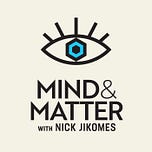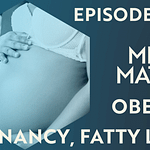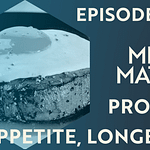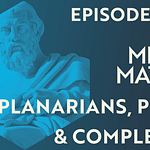Wide release date: August 1, 2025
Episode Summary: Anthropologist Dr. Herman Pontzer discusses human evolution and metabolism, comparing humans to primates like chimps and gorillas to explain our higher energy use, bigger brains, and longer lives despite trade-offs in reproduction and activity; they discuss dietary shifts from plant-based to hunting-gathering, metabolic adaptations, and modern issues like obesity, where exercise aids health but diet drives weight loss, emphasizing ultra-processed foods' role in overeating and the promise of new drugs like GLP-1 agonists.
About the guest: Herman Pontzer, PhD is a professor of evolutionary anthropology and global health at Duke University. He is the author of books like "Burn" and "Adaptable," which explore how bodies adapt to diets, activity, and environments.
Discussion Points:
Humans burn 20% more daily energy than other primates (controlling for body size), enabling big brains, more babies, and longer lives, but requiring efficient food strategies like hunting and gathering.
Unlike apes, humans evolved smaller guts, higher body fat (15-30% vs. apes' <10%), and mixed diets of animal and plant foods.
Hunter-gatherers like the Hadza are far more active than sedentary Westerners but burn similar calories, as bodies adapt by reducing basal metabolism, inflammation, and hormones.
Obesity stems more from increased calorie intake via ultra-processed foods than it does from reduced activity; exercise boosts health but rarely causes major weight loss on its own.
Early humans likely scavenged rancid meat, evidenced by low stomach pH similar to vultures, aiding digestion of risky foods.
Ketosis isn't unique to high-meat diets; even Inuit on low-carb diets resist it, and other carnivores don't stay in ketosis constantly.
Across global populations, richer countries have higher BMI and slightly higher total energy expenditure due to larger bodies, but basal rates drop with lower pathogen loads.
For weight loss, Dr. Pontzer points to diets high in fiber/protein for satiety; intermittent fasting works by cutting calories, not magic; GLP-1 drugs mimic hormones to curb hunger, although we stay mindful of potential long-term effects.
Related episode:
M&M 160: Diet, Hunting, Culture and Evolution of Paleolithic Humans & Hunter Gatherers | Eugene Morin
*Not medical advice.
Full video version: [YouTube]
Support M&M if you find value in this content.
Episode transcript below.
Episode Chapters:
00:00:00 Intro
00:04:07 Life History & Energy Expenditure
00:09:26 Gut-Brain Trade-Off
00:15:13 Measuring Metabolism
00:20:38 Metabolic Scaling Laws
00:25:34 Evolutionary Energy Boost
00:30:29 Activity Levels Compared
00:35:13 Genus Homo Origins
00:41:18 Water Conservation Adaptations
00:46:07 Scavenging & Rancid Meat
00:52:00 Metabolic Flexibility
00:58:24 Ketosis in Diets
01:03:18 Obesity Myths
01:08:10 Activity Adaptations
01:13:43 Diet & Obesity
01:19:05 Ultra-Processed Foods
01:24:55 Global Energy Study
01:31:15 Development Effects
01:35:33 Weight Loss Strategies
01:41:23 GLP-1 Drugs
01:46:11 Book Overview
Full AI-generated transcript below. Beware of typos & mistranslations!
Listen to this episode with a 7-day free trial
Subscribe to Mind & Matter to listen to this post and get 7 days of free access to the full post archives.













